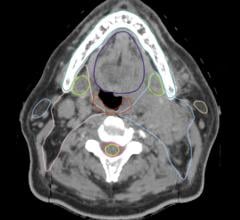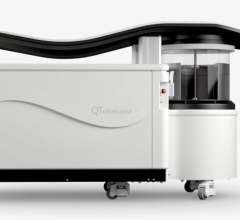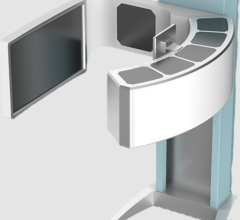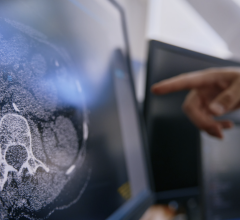
September 29, 2014 — Before undergoing cardiac imaging procedures involving radiation, healthcare providers should help patients understand why the procedure is needed and its potential benefits and risks, including risks related to radiation exposure, according to a new scientific statement in the American Heart Association's (AHA) journal Circulation.
"With technological improvements, medical imaging has become an increasingly vital tool in diagnosing and treating patients with heart disease, but the rising use of the tests has led to increasing radiation exposure over the past two decades," said Reza Fazel, M.D., M.Sc., chair of the writing committee for the statement and cardiologist at Beth Israel Deaconess Medical Center in Boston. "Heart imaging procedures account for almost 40 percent of the radiation exposure from medical imaging."
Effective communication between patients and healthcare providers is important, especially among patients who may have an overstated fear of radiation. The statement recommends that before moving forward with an imaging test that uses radiation, clinicians should initiate a discussion with patients to address their questions and concerns, and openly discuss questions such as:
- How will the test help diagnose or treat your/my heart problem?
- Are there other techniques to get the information without using radiation?
- How much radiation will you be exposed to?
- How could that affect your chance of developing cancer later in life, and how does that compare to the risk from other common activities?
"In general, the radiation-related risk of any imaging test to an individual patient is very small and, when the test is clinically appropriate, the benefits of the test typically far outweigh any potential risks," Fazel said.
With the exception of mammography, there is no federal regulation of radiation dose for medical tests, leaving the appropriate use of heart imaging in the hands of clinicians and imaging facilities. In 2009, the AHA called for judicious use of the tests and gave general recommendations for their use. The current statement builds on that advisory by providing practical recommendations for enhancing radiation safety in heart imaging. The new statement also provides guidance for training professionals who order or administer cardiac imaging tests.
According to the statement, clinicians ordering imaging tests should understand when each type of test is appropriate, the typical average radiation dose and the potential risks.
"Radiation-related risk is one of the factors that should be considered in the decision to use cardiovascular imaging with ionizing radiation, particularly in younger patients in whom the potential risk of radiation exposure is thought to be higher," Fazel said.
In deciding the best imaging method to use, the clinician should also consider the test's diagnostic accuracy, potential risks, availability, cost and convenience. The most commonly used heart and blood vessel imaging procedures using radiation are nuclear stress tests, cardiac CT (computed tomography) scans, and fluoroscopy. Echocardiography and cardiac magnetic resonance imaging (MRI) do not expose patients to ionizing radiation.
Professionals who perform cardiac imaging should have adequate knowledge of contemporary methods of optimizing radiation exposure, which means imaging with the dose of radiation required to obtain high-quality images using best available methods and not significantly more than that. They should also know how to minimize radiation exposure to staff, according to the statement.
For more information: www.circ.ahajournals.org


 April 23, 2024
April 23, 2024 








